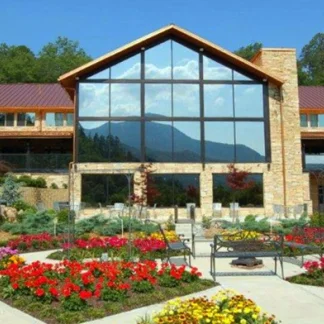Pasadena Villa - Smoky Mountain Lodge
Sevierville, Tennessee, 3889 Wonderland Lane, 37862
Available Programs
- Adult program
- Elderly program
- Program for men
- Program for women
- Total beds : 48
- Young adult program
Insurance and Financial
- Self-pay options
- Private insurance
About this Facility
Pasadena Villa–Smoky Mountains is an integrative, 12 step focused drug and alcohol rehab for adults in Sevierville, Tennessee. They specialize in the treatment of persons with complex psychiatric disorders and co-occurring addiction and offer inpatient, outpatient, and aftercare services in a private setting in the Great Smoky Mountains. Their primary treatment modalities combine psychotherapy with evidence based complementary therapies.
Pasadena Villa–Smoky Mountains, in Sevierville, Tennessee, offers comprehensive, 12 step focused addiction recovery services for adults with complex psychiatric conditions and co-occurring substance use disorder (SUD). They provide inpatient, outpatient, and aftercare services in a wilderness setting overlooking the Great Smoky Mountains. Dedicated services for young adults, seniors, men, and women are available. Their integrative programs combine individual, group, and family counseling with evidence based complementary therapies.
The inpatient program and Pasadena Villa–Smoky Mountains allows clients to focus on their recovery in a comfortable, highly supportive environment safe from outside distractions and addiction triggers. Their luxury treatment center is a private, rural setting with scenic mountain views and features premium amenities, including private rooms and onsite art and recreational facilities. While in inpatient care, clients attend multiple CBT and DBT focused therapy sessions daily. They may also choose from a range of proven complementary therapies, including EMDR, equine therapy, art therapy, exercise therapy, experiential therapy, and nutrition therapy. The program also prioritizes addiction education and recovery focused life skills training to promote sustained recovery.
Pasadena Villa–Smoky Mountains’ outpatient programs include multiple levels of care, including intensive outpatient (IOP) and traditional outpatient programs to support clients as they continue working on their recovery. The outpatient programs offer multiple therapy and training sessions each week, including evening, night, and weekend sessions.
The aftercare services at Pasadena Villa are designed to promote clients’ long term health and sobriety through a full suite of continuing care services, including career counseling, peer coaching, alumni programs, mental health and social services referrals, and transitional support for clients entering community based 12 step programs.
Pasadena Villa–Smoky Mountains is accredited by the Joint Commission and accepts private insurance and self pay.
Contact us for more information: (877) 845-5235

Contact Pasadena Villa - Smoky Mountain Lodge
Connect with Pasadena Villa - Smoky Mountain Lodge by calling their admissions team directly.
(877) 845-5235 Website Get Directions